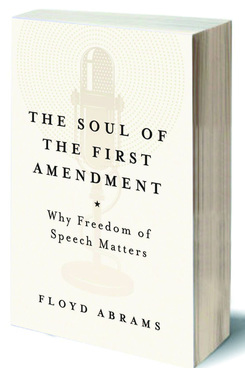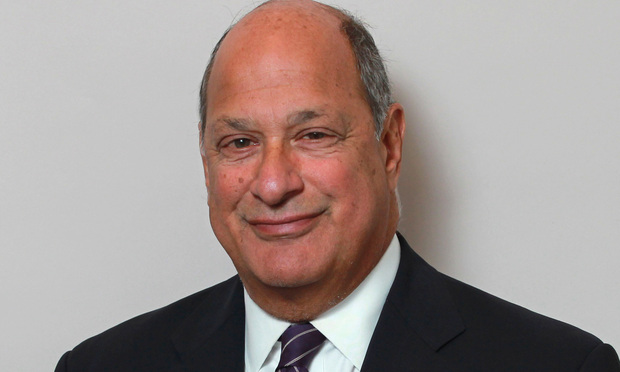Joel Cohen

September 29, 2017 | New York Law Journal
When His Witness Has Lied ... And the Prosecutor 'Knows' ItEthics and Criminal Practice columnist Joel Cohen writes: The consequences in the criminal courtroom regarding a proponent's offer of what is, or turns out to be, false testimony are different depending on which side proffers the testimony. After all, a prosecutor's duty is not simply to win, but to assure that justice prevails. So what if a prosecution witness lies?
By Joel Cohen
7 minute read

August 07, 2017 | New York Law Journal
May the Government Communicate With a Represented Client?Ethics and Criminal Practice columnist Joel Cohen writes: The question itself seems ridiculous, doesn't it? Of course, the answer has to be "no." Except … not really.
By Joel Cohen
18 minute read

June 12, 2017 | New York Law Journal
Is Counsel 'Obligated' to Seek a Judge's Recusal?In his Ethics and Criminal Practice column, Joel Cohen writes: Some defense attorneys (usually on the fringe and more so years ago) have been willing to "bait" judges. They engage the (prosecution-friendly?) judge and cause him to react, creating a palpable bias against counsel and client—a deliberate ploy to create sympathy, or justify recusal. Or these attorneys try their case, in part, by confronting the judge, particularly when the jury is seated, in a manner designed to induce error. But what about when recusal is warranted—can a failure to move constitute "ineffective assistance"? Consider the disturbing facts of a recent Third Circuit case.
By Joel Cohen
19 minute read

May 16, 2017 | New York Law Journal
The Soul of the First AmendmentIf you want to read about the First Amendment, you want the book written by a man whose name is virtually synonymous—Floyd Abrams. And that's not hyperbole. As the great Edward Bennett Williams was "The Man To See" for anyone with high stakes in a criminal forum, Abrams is that "Man" when First Amendment principles are at stake, even on unpopular subjects.
By Joel Cohen
11 minute read

April 06, 2017 | New York Law Journal
The Ethics of 'Holding Out' on Your ClientIn his Ethics and Criminal Practice column, Joel Cohen discusses a hypothetical: What if your adversary—perhaps someone you know professionally for years—pulls you aside with information about their case, that he or she will only tell you if you promise not to tell your client. Isn't your client better off if you hear something "his side" wouldn't otherwise learn at this stage, even if you will be honor-bound to keep it to yourself? Is this scenario all that different from an "Attorney's Eyes Only" document production?
By Joel Cohen
16 minute read

February 10, 2017 | New York Law Journal
When Lawyers and Judges Criticize Jury VerdictsEthics and Criminal Practice columnist Joel Cohen writes: It's completely fair game for commentators to criticize a jury verdict—after all, why shouldn't journalists write that O.J.'s acquittal was out of line, or that Rubin "Hurricane" Carter's conviction was unjust? But do the same rules apply when the prosecutor, defense attorney or even the judge chooses to lash out publicly against a jury verdict, even if the disagreement is in good faith?
By Joel Cohen
19 minute read

December 12, 2016 | New York Law Journal
When a Detective Deceives—And the Lawyer Knows ItIn his Ethics and Criminal Practice column, Joel Cohen explores the ethical rules surrounding lawyers' oversight of investigators who use deceit. Most recently, a decision by Judge Jed Rakoff in 'Meyer v. Kalanick' put the import of ABA Rule 5.3 well into perspective for lawyers who hire or supervise investigators who would use deception to gain helpful or even essential information. Rakoff used the opportunity to remind counsel that, beyond the Rules, litigation requires truth-seeking, coupled with zealous advocacy.
By Joel Cohen
19 minute read

October 07, 2016 | New York Law Journal
What About Selective Prosecution? Considerations and AnalysisEthics and Criminal Practice columnist Joel Cohen examines cases, strategies and ethical considerations related to prosecutorial discretion, pointing out that cases that actually find the government abused its authority are rare in large part because the U.S. Supreme Court has set a very high bar.
By Joel Cohen
17 minute read

August 08, 2016 | New York Law Journal
The Reliability of a Prosecutor's Representations in Plea NegotiationsIn his Ethics and Criminal Practice column, Joel Cohen writes: Federal and state prosecutors sometimes make plea, or immunity, offers without having gained the requisite approval of higher ups, perhaps more often than one might think. And while many defense attorneys simply won't want to litigate whether the prosecutor's office is bound by the now-breached plea offer, aware of the office's "institutional" memory, there have been challenges.
By Joel Cohen
21 minute read

June 14, 2016 | New York Law Journal
The Movie 'Spotlight' and Legal EthicsJoel Cohen and James L. Bernard write: Like all good movies about an important and controversial event, the story told in the movie "Spotlight," about the role of the Boston Globe in uncovering the breadth of the clergy scandal that impacted the Boston diocese, was no doubt some combination of truth and dramatization. One startling and poignant scene is worth discussing from an ethics point of view.
By Joel Cohen and James L. Bernard
25 minute read
Trending Stories
- 1Gibson Dunn Sued By Crypto Client After Lateral Hire Causes Conflict of Interest
- 2Trump's Solicitor General Expected to 'Flip' Prelogar's Positions at Supreme Court
- 3Pharmacy Lawyers See Promise in NY Regulator's Curbs on PBM Industry
- 4Outgoing USPTO Director Kathi Vidal: ‘We All Want the Country to Be in a Better Place’
- 5Supreme Court Will Review Constitutionality Of FCC's Universal Service Fund
More from ALM
- Legal Speak at General Counsel Conference East 2024: Match Group's Katie Dugan & Herrick's Carol Goodman 1 minute read
- Legal Speak at General Counsel Conference East 2024: Eric Wall, Executive VP, Syllo 1 minute read
- Legal Speak at General Counsel Conference East 2024: Virginia Griffith, Director of Business Development at OutsideGC 1 minute read



